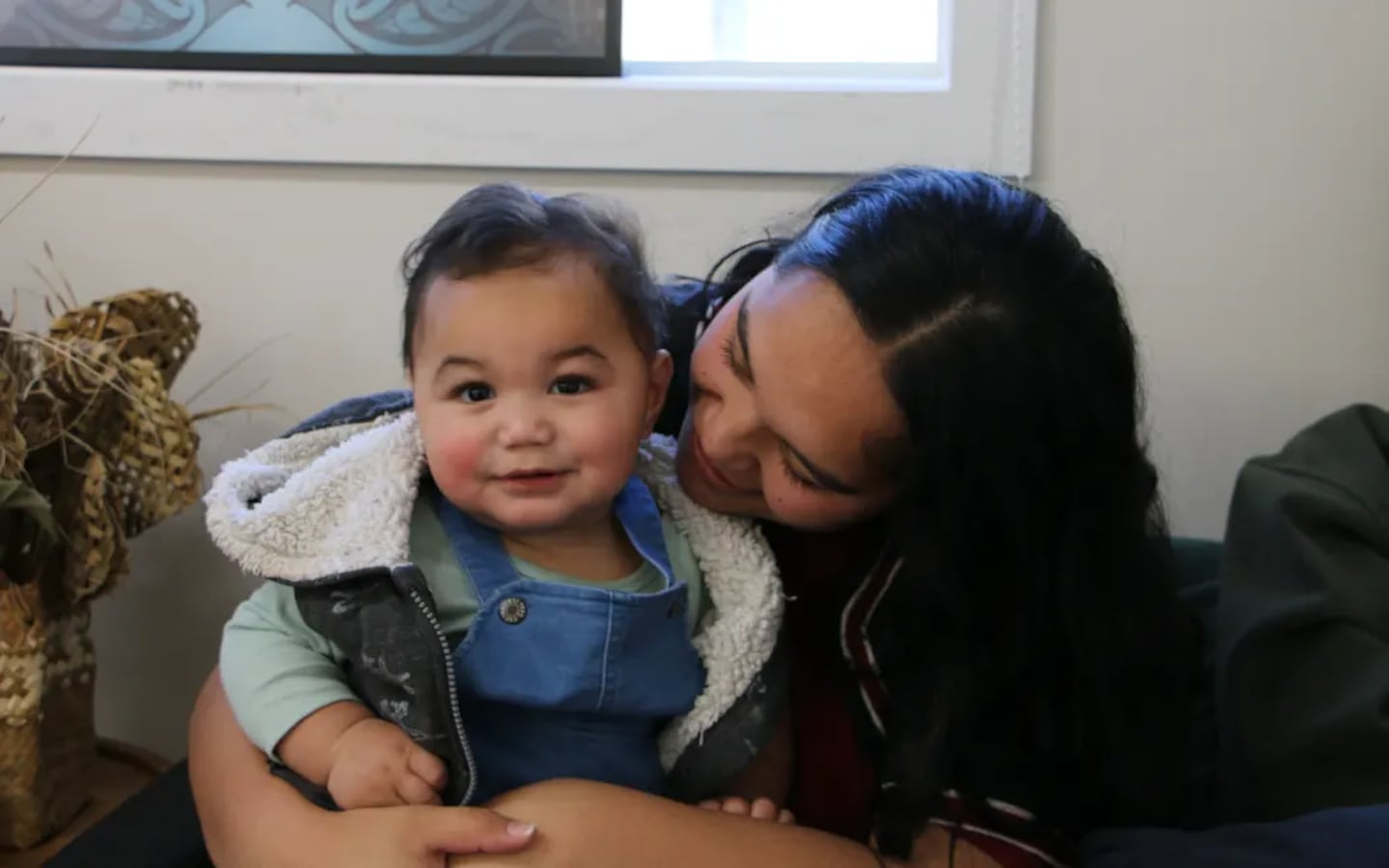This article was first published by RNZ
Young māmā say spaces grounded in te ao Māori have helped them reconnect to their Māoritanga and become better parents because of it.
Surrounded by karakia, waiata and kai, whānau gathered in East Auckland on Tuesday celebrating the official opening of a new kaupapa Māori health and social services hub.
Te Whare Piringa, located on Ngāti Pāoa whenua in Glen Innes, is the first iwi-led space of its kind.
Run by Ki Tua o Matariki, formerly known as E Tipu E Rea, it offers wraparound support for young parents and pēpi, and is specifically designed to encourage intergenerational healing among whānau.

For 23-year-old Krisharn Reremoana Thompson, kaupapa Māori services helped her through one of the toughest chapters of her life.
“I was a newly single mum. I had just left an abusive relationship, and I’d just had Va’a [my first-born] at the time. I was lost, struggling, and out of touch with my Māoritanga,” she said.
“I just needed some awhi and support to get back on my feet and find myself again so I could be a better mum.”
Her son Va’a, now four, showed his māmā some tautoko and made clear the amount of aroha he has for her.
With the biggest smile on his face, he told her: “You are a better mum.”
As she cuddled her two pēpi, Reremoana Thompson said reconnecting to her culture also helped her rebuild her confidence as a parent.
“They’re the motivation for me that I need to keep going. And on the bad days, they’re still there to help me, and push me to get through,” she said.
“I would do anything to be better for my kids, and the service helps a lot with that.”

Katrina Kepa, 19, attended the opening alongside her partner, brother and 10-month-old baby boy, Jazahrn.
She said being a young māmā in Auckland can be lonely but having kaupapa Māori spaces for mātua taiohi (young parents) has helped give her a sense of belonging.
“People say being a parent is easy, and that’s the biggest lie I’ve ever heard,” she told RNZ.
“There’s challenges and obstacles you have to overcome for your child, with your child, and for your family... You’re trying to look after your own well-being while caring for a child.”
She said while being a mum is exciting, it is also hard.
“Some of us don’t have the luxury of having a partner there. And being Māori, people stereotype you straight away.”
She said safe, affirming spaces helped her feel grounded, even though she hadn’t grown up fully connected to her culture.
“I want to be the cycle breaker for my boy. I want him to know he doesn’t have to fit a box because someone else put him there.”
Kepa said there are plenty of negative stereotypes about Māori and especially young Māori parents in Aotearoa, however, she is determined to overcome them for her son.
“He’s the main reason why I push to be what I want to be. To teach him that he doesn’t have to be put in a box just because people put him there. ”
Both māmā encouraged other young parents to not be afraid to ask for help.
“The best thing to do is just ask. Don’t feel shame. You don’t have to do it alone,” Reremoana Thompson said.
Kepa also called on young pāpā to seek support..
“Our pāpā are taught: you don’t ask for help because you’re the man, you’re the provider. Nah, ask for help. Break that cycle for your kids,” she said.
“Don’t let anybody tell you, you can’t do this, you can’t do that. Because you can.”
Returning to the pā harakeke
The opening of Te Whare Piringa was marked by the planting of harakeke, symbolising whakapapa, protection, and collective care in te ao Māori.
Ki Tua o Matariki Chief Executive Zoe Witika-Hawke said Māori were the healthiest when they were strong in their tikanga.
“We were the healthiest when our tikanga, our culture, our reo was strong. And that includes the strength of our collective, our village, our papakāinga,” Witika-Hawke said.
“We may not have the papakāinga our tūpuna once grew up in and thrived in, but this whare is about reclaiming that village.”
She said they want whānau, hapū, iwi, mātua taiohi and mokopuna to be “healthy again.”
“And with that comes our dedication to bringing back into their lives, who they are, their identity, their tikanga, their reo, all of it.”
Te Whare Piringa is open to all young māmā, pāpā and whānau. Witika-Hawke said while they offer a variety of kaupapa like parenting wānanga and rongoā mirimiri, whānau don’t have to receive a service in order to visit.
“Just hanging out with us, being with us, is important for whānau,” she said.
“If whānau don’t feel love when they walk through these doors, then we’re not doing our job. That’s what we want them to feel - that they belong.”
Sign up for Ngā Pitopito Kōrero, a daily newsletter curated by our editors and delivered straight to your inbox every weekday.
By Layla Bailey-McDowell of RNZ


